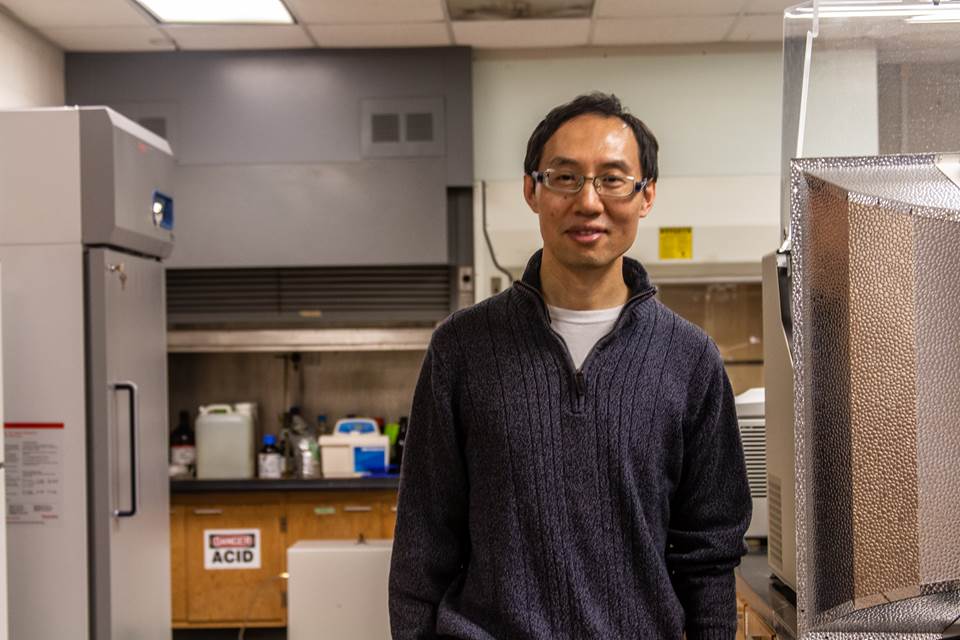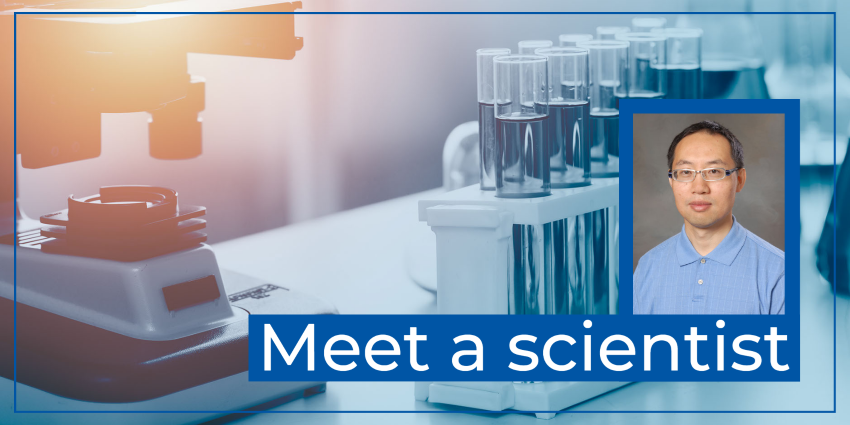When Xingmao “Samuel” Ma, Ph.D., was a young student deciding what career path to follow, he was inspired by seeing the environment and its care becoming a central issue. Ma decided he wanted to help, and now, 30 years later, his path as an environmental engineer has put him in a position to do just that.
Now an associate professor in the Zachry Department of Civil and Environmental Engineering at Texas A&M University, Ma was recently named a 2022 TWRI Faculty Fellow. His current and future research aims to break down short chain per- and polyfluoroalkyl substances (PFAS).
PFAS are chemical compounds that can be found in air, water and soil; research has shown that the compounds can build up in human and animal bodies over time and pose potential health risks.
Academic journey leads to Aggieland
Ma started his research journey in 1993, attending Taiyaun University of Technology in China and graduating in1997 with a bachelor’s degree in environmental engineering and a minor in English literature.
“Why I majored in environmental engineering is because at that time people were very concerned about the environment,” Ma said. “I saw that it was going to be a major societal challenge, so I wanted to contribute to that.”
Ma went on to attain his master’s in environmental engineering from Tongji University in China before moving to the United States to pursue his Ph.D. at Missouri University of Science and Technology. He then earned his Professional Engineering license in 2006; and began his academic career as an assistant professor at Southern Illinois University the next year, where he remained until relocating to Texas A&M in 2015.
“When the recession in 2008 happened, it hit the Midwest fairly hard and the impact lasted for many years,” Ma said. “I decided it was time to look for a new opportunity in 2013, and I found an opening at Texas A&M and have been here ever since 2015.”

Ma in his lab at Texas A&M.
Seeking solutions to PFAS problems
Since joining the College of Engineering at Texas A&M, his research interests have focused on environmental issues and how science can help. As a 2022 TWRI Faculty fellow, Ma is now researching new methods to break down short chain PFAS. Ma is also a recipient of funding from the Water Program of Excellence, and he is the Principal Investigator for his team studying how photocatalysis might be used to treat PFAS in moderately contaminated bodies of natural waters.
“Atomically dispersed iron catalyst supported on biochar (ADFe@BC) is a promising new technology to effectively remove short chain PFAS,” Ma writes in his Faculty Fellow proposal. “However, detailed interactions between ADFe@BC and short chain PFAS are still poorly understood.”
Ma suspects that the catalyst will produce a high number of hydrated electrons, which will then in turn reduce PFAS to less harmful products in tested samples.
PFAS have become an emerging issue in the U.S. in recent years as more studies have shown the potential health issues the substances cause. While “billions of dollars” are being spent by the U.S. every year studying PFAS, Ma mentions, there is currently no deployable technology available to remove PFAS from the environment.
“Nowadays, people realize that short chain PFAS are simply just as toxic as long chain PFAS,” Ma said. “My future goal will be to develop some technologies that could break down short chain PFAS more effectively.”
Proposals for the 2023 Faculty Fellows Program are currently open to all Texas A&M System universities and agencies. The program aims to provide resources and funding for up to three fellows to further the development and submission of proposals for external funding. TWRI is seeking applicants who are engaged in water resources-related research and are looking to build their research acumen; expand their colleague and collaborator network; and gain valuable experience in leading diverse, multi-partner research proposals.
For technical questions regarding proposal content, contact Lucas Gregory, Ph.D., at lfgregory@ag.tamu.edu budgetary or submission questions, contact Danielle Kalisek at Danielle.Kalisek@ag.tamu.edu.


